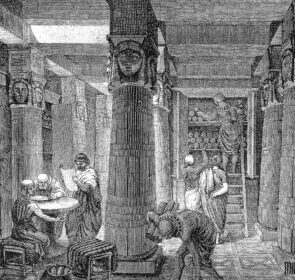The Energy Report
The Energy Report by WWF, Ecofys and AMO; January 2011, 253pp Reviewed by Austin Williams | February 2011 If you enjoy reading end of year accounts, or poring over corporate brochures, you will love The Energy Report – the eco-equivalent of a BP audit statement. Written by a huge number of people from WWF, together with some from Ecofys (a Dutch renewable energy consultancy), it has been designed by AMO, the consulting arm of...
Driving the world to destruction?
‘Two Billion Cars: Driving Toward Sustainability’ by Daniel Spurling and Deborah Gordon, Oxford University Press, 2010. 322pp Reviewed by Austin Williams | 10 April 2010 Musing about Easter Island, Jared Diamond famously asked “what were they thinking when they chopped down the last tree?” Diamond’s polemical book “Collapse”, written five years ago (but based on a 1995 article), argues against the unthinking exploitation...
Two Cases for the (Floods) Defence
‘Atlas of the New Dutch Water Defence Line’ (010 Publishers) & ‘Facing up to rising sea levels (Building Futures, RIBA) Reviewed by Austin Williams | February 2010 Contrary to the implication in its title, the Atlas of the New Dutch Water Defence Line has nothing to do with global warming and flood management. The book is a historical assessment of the network of watercourses known as the Nieuwe Hollandse...
Powerful Connections
Martyn Perks | 20 October 2009 The Times restaurant critic Giles Coren recently experimented with Twitter—the phenomenally successful online social networking tool. He used it to review London’s Criterion restaurant using his mobile phone. With Twitter, you can send individual messages or ‘tweets’ up to a maximum of 140 characters each. Starter, main course and dessert all followed. By the end of the meal Coren had sent 19 separate...
Dan Dare or Dan Daren’t
Austin Williams | 3 October 2008 Whatever happened to the jet-pack; the monorail; the personalised Lear jet; Maglev taxis; automated highways; long-haul flights by space shuttle? All of these strange and wonderful transport ideas were commonplace Utopian ambitions for the future as seen by the Sixties’ generation. Most of them were even technologically possible back then. Today, if there is ever mention of anything so fanciful, it...
Taking a shortcut around the digital divide
Martyn Perks | 1 March 2007 Sunderland City Council has just won the Digital Challenge competition and been awarded £3.5m by government. While digital inclusion has become a major focus for funding and social renewal, it is questionable whether IT is actually being used for the right reasons. While this funding package is obviously good news for the local authority’s accountants, what does it really mean to those who have been...
Technology and Obsolescence
‘Made to Break: Technology and Obsolescence in America’ by Giles Slade; Harvard University Press, 2007. 336pp Reviewed by Austin Williams | 30 November 2007 I wasn’t looking forward to this book. The title seemed to sum up two popular contemporary pastimes, a despondency about societal progress and a condescension towards American (over)consumption. With its dust-jacket displaying a mountain of discarded computer...
The Story of Creative Engineering
‘Masterworks of Technology: The Story of Creative Engineering, Architecture and Design’ by EE Lewis; Prometheus Books, 2004. 328pp Reviewed by Austin Williams | 20 September 2004 What a refreshing change, as they say. This is a book that oozes calm intelligence and an ease of imparting knowledge that at once informs and avoids patronising its audience. ‘Unlike scientists,’ he says, ‘who seek comprehension of the natural...
iRobot
‘I, Robot’ by Isaac Asimov; Collins, 1971. 256pp Reviewws by Dave Clements | 28 April 2005 In this collection of short stories written in the 1940s, Asimov explores the human condition and our changing understanding of it, vis-a-vis the robot. Each is linked by the reminisces of Susan Calvin, robo-psychologist with US Robot and Mechanical Men, Inc. ‘Robbie’ is the playmate that causes a mother to worry about...
Tomorrow's World
David Clements | 13 December 2003 ‘One year ago, Tomorrow’s World was cancelled,’ announced Austin Williams, convenor of the one-day conference Future Vision: Future Cities and chair of the final plenary ‘Tomorrow’s World: Visions of the Future ‘. Indeed, as the knowing laughs from the audience suggested, even though the reference was to the former BBC flagship of TV Science, the implications are wider...








